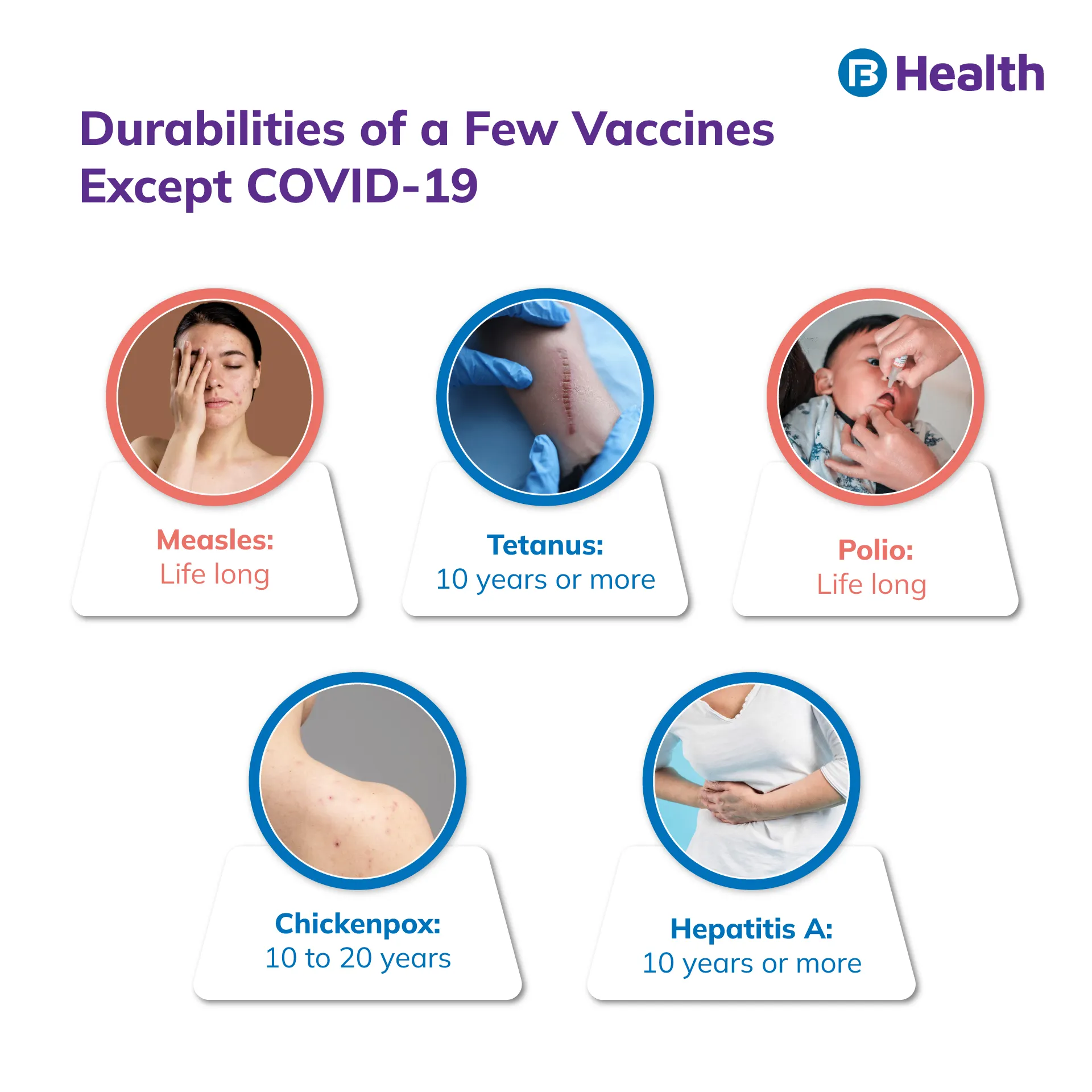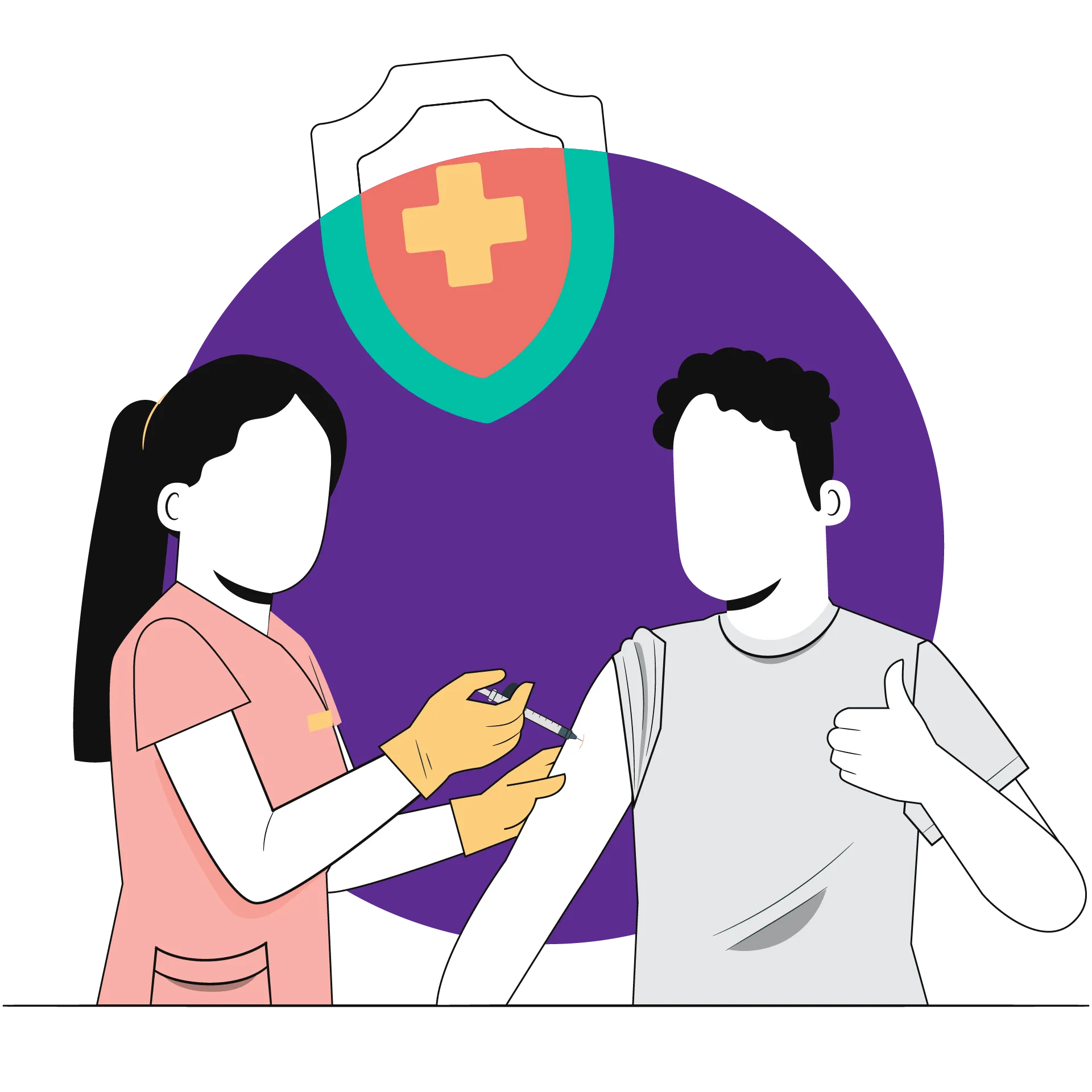General Health | 4 min read
World Immunization Week: 5 Important Things You Should Know!
Medically reviewed by
Table of Content
Key Takeaways
- Before 2012, immunization week was observed on different days across the globe
- World Immunization Week was globally observed for the first time in 2012
- Active vaccination helps prevent around 3-4 millions of death each year
World Immunization Week is a health campaign that aims to raise awareness about immunization. It also aims to increase the rate of immunization against diseases that can be prevented with vaccines. The week is globally observed in the last week of April, i.e. from April 24-30.
Every year, there is a theme for the immunization week that centers around the focus and effects of vaccines. For World Immunization Week 2022, theme is Long Life for All. It focuses on how vaccines can help people live longer by giving them a chance to fight against various diseases. Read on to know more about this global campaign and the effects of vaccines.
How did the global observation of World Immunization Week start?
Prior to 2012, Immunization Week was observed at different times for different countries. In their May 2012 meeting, World Health Assembly endorsed the World Immunization Week. This led to the Immunization Week being globally observed for the first time. It also saw participation of more than 180 territories and countries across the globe.
Additional Read: World Water Day 2022What is the goal of Immunization Week?
Immunization week poses as an opportunity to shed light on the importance of vaccination, its effects, and to encourage people to get vaccinated. Apart from these, it also aims on the following [1]:
- Raising awareness about how vaccination saves lives<span data-ccp-props="{"201341983":0,"335559739":0,"335559740":240}">
- Increasing vaccination rates to prevent outbreaks
- Helping provide vaccines to marginalized and underserved communities
- Reinforcing the short, medium, and long-term benefits of vaccination

What are benefits of immunization?
Active vaccination helps prevent 3-4 million deaths each year [2]. The benefits vaccination brings also include the following:
- It lowers the possibility of outbreaks and spread of infectious diseases
- It helps prevent serious illness
- It is cost-effective
How do vaccines work?
Vaccines work with your body’s natural defenses and help build protection against certain illnesses. Your body will do the following in response to the vaccine:
- Recognize the virus, bacteria, or germ that invades your body
- Build resistance for specific conditions and strengthen your immune system
- Produce antibodies to fight the disease
- Memorize the disease as well as how to fight it
In this way, your protection against a disease can last from anywhere between years, decades, or lifetime.

Are there side effects of vaccination?
Vaccination can cause mild side effects but long-term or severe side effects are a rare occurrence. They are continually monitored to ensure safety and detect any adverse effect. Common side effects of vaccination are
- Low grade fever
- Redness or pain at the place of injection
Keep in mind that these side effects usually go away on their own within a few days. You may also experience no side effects at all.
How many diseases can vaccine help prevent?
Vaccines can help prevent a number of diseases, some of which are:
- COVID-19
- Diphtheria
- Hepatitis B
- Cervical cancer
- Ebola
- Cholera
- Influenza
- Measles
- Pertussis
- Japanese encephalitis
- Meningitis
- Pneumonia
- Rabies
- Polio
- Mumps
- Rubella
- Rotavirus
- Varicella
- Yellow fever
- Typhoid
- Tetanus
Keep in mind that this is not a comprehensive list. There are also some vaccines that are under development and are not yet available for the world’s population. Also, some vaccination depends on where you live. You may also receive some vaccines in case you are in or travelling to a high-risk area, or have a high-risk occupation.
Why should you get vaccinated?
Two important reasons for you to get vaccination is
To protect yourself
Without vaccination, you put yourself at risk of getting exposed to severe illnesses and diseases. Some of these diseases can be fatal or lead to some form of disability.
To protect other around you
In a population, every one may not get their dose of vaccine for various reasons. People who come under this set are infants, and individuals with severe illness or certain allergy. Their protection against diseases may be dependent on your vaccination status.
Additional Read: Measles Immunization DayWith these information, make sure that you have vaccination for all the necessary illnesses, including COVID-19. You should also remember that there are still certain diseases that are not preventable by vaccines. Be sure to keep your health in check and if you have any health concerns, talk to a doctor. Book an online or in-clinic doctor consultation on Bajaj Finserv Health. With an expert’s help, you can better understand your health and know what is best for you. This World Immunization Week 2022, make health your priority and ensure that you along with people around you get vaccinated!
References
- https://www.who.int/news-room/events/detail/2012/04/24/default-calendar/world-immunization-2012
- https://www.who.int/news-room/facts-in-pictures/detail/immunization
Disclaimer
Please note that this article is solely meant for informational purposes and Bajaj Finserv Health Limited (“BFHL”) does not shoulder any responsibility of the views/advice/information expressed/given by the writer/reviewer/originator. This article should not be considered as a substitute for any medical advice, diagnosis or treatment. Always consult with your trusted physician/qualified healthcare professional to evaluate your medical condition. The above article has been reviewed by a qualified doctor and BFHL is not responsible for any damages for any information or services provided by any third party.





